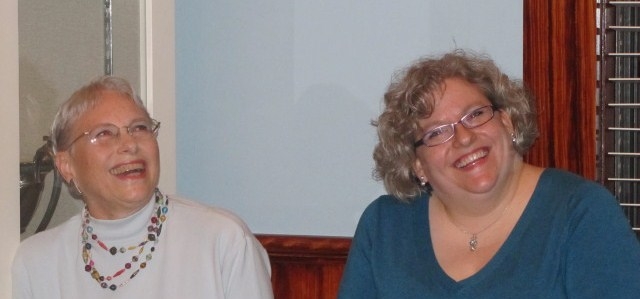
Lenda Bates DuBose knew she would not survive peritoneal cancer. Yet the longtime Nashville resident and Vanderbilt graduate was grateful for the treatments that prolonged her life. She wished there was a way she could express her gratitude. After Lenda passed away in December, her daughter, Printha K. McCallum, fulfilled her mother’s wish. Below is her “thank you” letter to researchers, including her colleagues at Vanderbilt University Medical Center.
By Printha K. McCallum
On April 1st, 2009, my family received life-altering news. My mother was diagnosed with primary peritoneal cancer and thus began two-and-a-half years of surgeries, chemotherapy, hospital stays and, finally, hospice care. During it all, my mother maintained a positive outlook and amazing grace. She did have moments of doubt, of self-pity and of fear; but those were fleeting and quickly replaced by hope, peace, and confidence. And that is thanks to you.
When my mother was first diagnosed, I had never heard of primary peritoneal cancer. Against her doctor’s advice, I looked it up on the Internet. Primary peritoneal cancer is a cancer of the cells lining the peritoneum or abdominal cavity. It is closely related to ovarian cancer and doctors use similar treatments. It is a rare and aggressive cancer and the median survival rate is between 12 and 18 months. My mother survived twice that long. And that is thanks to you.
Last fall my mother told me that, when she was overcome by fatigue and the other side-effects of chemotherapy or overwhelmed by the emotional and psychological reality of her situation, she took great comfort thinking about one thing in particular. And that was you.
She imagined a researcher, sitting at a bench, working to find a cure. She thought about a lab assistant, analyzing the results of a new treatment protocol. She saw a pathologist, looking through a microscope, noting the effects of a new drug. She found it comforting to think about the hundreds, if not thousands, of researchers and staff working every day in the lab to discover new drugs, or to perfect existing medications.
Through my involvement in the Animal Care and Use Program, my mother came to learn more about what goes into biomedical research and her appreciation grew. My mother was nothing if not curious and she wanted to know about the entire process – from veterinary care to daily husbandry, from cage wash to procurement. She was interested in the implications of changes to the federal budget and regulations. She wanted to understand how an idea became a protocol and how research progressed from the lab to the bedside.
The image that comforted my mother expanded to include a care tech changing cages, a protocol analyst working at a computer, and a shipping coordinator helping with the arrival of a new investigator. Seeing the enormous effort of thousands of individuals gave my mother comfort. Recognizing the contribution made by each of those individuals made her grateful.
My mother wished there was a way she could let the research community know her deep appreciation – for the drugs that slowed her cancer and mitigated the side effects of the chemotherapy and for the discoveries that are yet to come. It is because of your daily efforts that my mother survived 32 months after her diagnosis. It is in your dedication to biomedical research that my mother found comfort and solace as her disease progressed. On her behalf and to fulfill her wish, please accept my deepest thanks.
Printha K. McCallum, MBA, is administrative manager of the Division of Comparative Medicine in the Department of Pathology, Microbiology and Immunology at Vanderbilt University Medical Center